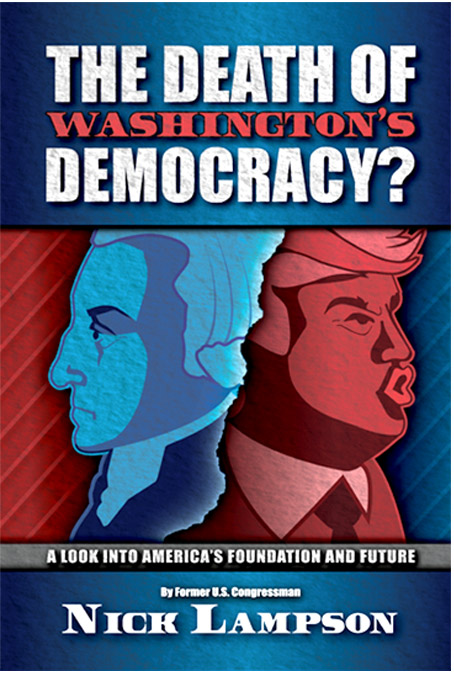ABOUT THE AUTHOR
Nick Lampson, former U.S. Congressman, has acted in government for forty-two years, ten of those in the U.S. House of Representatives. His political saga started in local elected office and continued to numerous state agencies and committees, including Congressional Committees on Science, Space and Technology; Transportation and Infrastructure; and Agriculture. He created the Congressional Caucus on Missing and Exploited Children, helped create the Congressional Center Aisle Caucus, worked in Congress on science issues involving space, environment and energy and was a delegate to the NATO Parliamentary Assembly. He has been a high school science teacher, a university instructor, a community activist, legislator, lobbyist, family man and concerned citizen. Since congress he was appointed to a National Academies of Science study to modernize the National Weather Service and to serve as Chief Operating Officer of a healthcare delivery system in Southeast Texas.
ABOUT THE BOOK

Men in suits huddle over a map. They point to specific streets, drawing lines down abandoned roads and alleys. They cut up neighborhoods and communities like butchers; all for the sole purpose of making sure certain individuals stay in political power.
This isn’t some dystopian future – this is gerrymandering. George Washington couldn’t have imagined such ruthless tactic, but now it happens all the time.
The Death of Washington’s Democracy? explores some of the obstacles to restoring cooperation and civility in Washington, DC including the polarizing effects of cable television and talk radio, helped along by government deregulation in the mid-1980s and the 2010 United States Supreme Court decision known as Citizens United, which some speculate could have been ghostwritten by the ethically challenged Tom DeLay, opening the floodgates to corporate spending in political races.
But we can start healing this breach by making sure more congressional districts are truly competitive in the general election, winnable by moderate candidates of either party willing to eschew red-meat partisan rhetoric in favor of negotiation and compromise for the public good. To do that, we must convince our representatives in Congress and statehouses around the country to reform the redistricting process, beginning with the next redistricting year.
That task won’t be easy because both major parties will oppose anything that threatens to reduce their clout. But the present system simply isn’t working for the American people, and proposed reforms, if given a chance, could help put Congress back on track to civility, real problem-solving for the people, and moving our United States of America forward.


